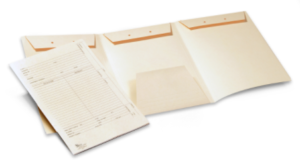Hello folks. Can you tell me, please, your opinion about whether or not I need extra light for my lecture cam? Continue reading “Extra light? No extra light?”
Upcoming ePCT webinars (not the same as upcoming PCT webinars)
Update: the webinars are now imminent. See a followup article.
Hello dear ePCT enthusiasts! Here are fifteen upcoming webinars that I will be presenting in the next few months on ePCT topics. Note that this is not the same as the upcoming fifteen webinars about PCT. This is fifteen upcoming webinars about ePCT. Note the “e”. Continue reading “Upcoming ePCT webinars (not the same as upcoming PCT webinars)”
More than one thousand six hundred signups for the PCT webinar series
I am astonished (in a good way) to see that just a few minutes ago we surpassed 1600 registrations for the Schwegman Lundberg Woessner 2022 Virtual PCT Training Seminar. This Seminar is a series of fifteen webinars that will commence two days from now, on Tuesday, February 8, 2022. Continue reading “More than one thousand six hundred signups for the PCT webinar series”
Save the date! USPTO Design Day 2022
(Update: you can now register for Design Day 2022. See blog article.)
A date has been tentatively set for USPTO’s Design Day 2022. The date is Thursday, April 21, 2022. Continue reading “Save the date! USPTO Design Day 2022”
Trifold patent file folders

What a walk down memory lane! In one of the patent practitioner listservs, a member today asked where they could purchase heavy-duty trifold patent file folders. Continue reading “Trifold patent file folders”
The toteboards get mentioned
 It was fun to see the 2021 trademark registration toteboard getting mentioned on social media within mere minutes of when the toteboard got posted. You can see it here on LinkedIn:
It was fun to see the 2021 trademark registration toteboard getting mentioned on social media within mere minutes of when the toteboard got posted. You can see it here on LinkedIn:
Cantor Colburn LLP is proud to be top ranked in 2021 for patents and trademarks: #4 for utility patents, #5 for design patents, and #6 for trademarks.
[…]
We also thank Harrity & Harrity, LLP Analytics for patent data and Carl Oppedahl’s Ant-like Persistence Toteboards for trademark data.
China joins the Hague system

Today China deposited its instrument of accession to the Hague system, the international system for protection of industrial designs. The Hague system will take effect for China on May 5, 2022. Continue reading “China joins the Hague system”
Results: the 2021 US Tote Boards
Here are the results for the 2021 US Tote Boards.
The firm ranked first in filing of granted US plant patents in 2021 is Randall | Danskin. The runner-up is Koenig IP Works, PLLC. This is the third annual US Plant Patent Tote Board.
The firm ranked first in filing of granted US design patents in 2021 is Banner Witcoff. The runner-up is Birch, Stewart, Kolasch & Birch, LLP. This is the tenth annual US Design Patent Toteboard.
The firm ranked first in filing of granted US utility patents in 2021 is Oblon, McClelland, Maier & Neustadt, L.L.P. The runner-up is Sughrue Mion PLLC. This is the seventh annual US Utility Patent Toteboard.
The firm ranked first in filing of granted US trademark registrations in 2021 is Fross Zelnick Lehrman & Zissu, P.C. The runner-up is Muncy, Geissler, Olds & Lowe, P.C. This is the seventh annual US Trademark Registration Toteboard.
2021 US Utility Patent Toteboard
To see the 2021 US utility patent toteboard, click here.
Welcome developments with DAS – Denmark (correction)
![]() Several alert readers have pointed out to me a typographical error in yesterday’s blog article Welcome developments with DAS – Denmark. I incorrectly indicated that DPTO’s effective date for becoming an Accessing Office and a Depositing Office for utility models was September 17, 2021. The correct date was November 30, 2021. The first kind reader to spot this error and to report it to me was Debra Collier, located in Switzerland. Prompted by her I have corrected the blog article. Thank you to Ms. Collier!
Several alert readers have pointed out to me a typographical error in yesterday’s blog article Welcome developments with DAS – Denmark. I incorrectly indicated that DPTO’s effective date for becoming an Accessing Office and a Depositing Office for utility models was September 17, 2021. The correct date was November 30, 2021. The first kind reader to spot this error and to report it to me was Debra Collier, located in Switzerland. Prompted by her I have corrected the blog article. Thank you to Ms. Collier!
